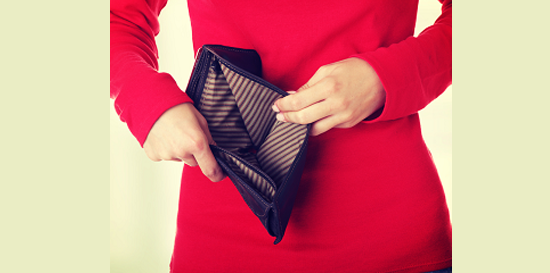“I feel I should be more responsible with my bonus this year. I ought to settle some of my debt.”
This is my friend Carol speaking. Carol is highly skilled, but she never cared much for her finances. She doesn’t want her debt to be a complicated affair. As long as all the minimum debit amounts can be covered each month, she’s happy.
Since her first child was born a year ago, this has changed somewhat. She and her partner are more serious about managing their finances as they want to give their child a financially secure upbringing. They have more child-related expenses, but also want to invest and Carol rarely has any money left at the end of the month.
Now she wants to put her bonus to good use, but she is also not sure if she should start clearing her credit debt with the extra money or rather invest it.
Interest rates are in an upward cycle at the moment. If you have a bond, you would have noticed the increase on your monthly repayment.
And this is not the end of it. Economists agree that we can expect further rate hikes next year, maybe even in what’s left of this year.
The interest rate cycle is an important consideration when deciding to settle debt or to invest, says Abri du Plessis, economist and CEO of Gryphon Asset Management.
“Generally we find that shares do not perform well in a rising interest rate cycles and equity investments should well planned. If a person with a high debt burden should choose between investing any extra money or settling their debt, they could in the end save more by getting rid of the interest-bearing debt. Unless it is a fixed rate, their debt repayments will increase with every hike.”
If you decide to settle debt, those with the highest interest rate should be prioritised, he advises.
Credit debt is expensive. The interest rate charged on credit loans differ amongst credit and store card providers, but the maximum rate under the National Credit Act is calculated as follows: repo rate x 2, 2 + 10%. The repo rate is currently 5, 75% so the maximum rate is 22, 65%.
Be very careful of credit debt. It costs a lot more than we often realise. Research from Sanlam shows that a typical handbag bought for R550 on a store card and paid off over 12 months would, in fact, cost the buyer around R891 (R59 in interest and R282 in admin fees). For R891, that person could have bought a far nicer bag. The same applies to a TV purchased on a credit card for R15 000. It would cost about R18 996 after interest and fees.
If you don’t repay your credit card in the fixed interest-free period, interest is charged. The outstanding amount just grows as compound interest (interest that’s charged on interest) on the loan increases. It’s a snowball effect. Boom! You have a debt crisis!
In the quarter until 31 March there were 21,71 million active credit users on South Africa’s credit bureaus’ books. According to the National Credit regulator 44, 2% of them have an impaired credit record.
Unlike my friend Carol, many people do not have the windfall of a bonus coming their way, but they can still tackle their credit debt.
It begins with budgeting – making sure all your important monthly expenses (such as food, school fees, and debt repayments) are taken care of and cutting down on luxuries. If you have an extra amount available (every little bit helps) this can be used to increase the minimum repayment amount of your credit debt.
If you have multiple store or credit cards, you can consider paying off the smallest credit debt first. If it is done, increase the monthly minimum payment of the second smallest amount, which will help you to settle that one quicker. And it so it goes.
If you have those high interest debts covered, you can consider investing money in a rainy day fund. This is typically two to three months’ salary in an accessible account. These emergency funds are debt busters as they can cover expenses in a crisis without you incurring debt doing so.
Before you invest any money, get qualified help from an accredited financial adviser. Likewise, if you are not able to pay your monthly debt iinstallment speak with the credit provider. Never stop payments without discussing this with the creditor. Banks, for instance, have debt advisors to assist clients who are struggling to make ends meet. You can try to make a realistic arrangement to afford the monthly repayments.
Taking charge of your debt requires you knowing your debt status. This is done easily (and online!) by obtaining a credit record through credit bureaus such as Experian and TransUnion. Consumers are legally entitled to one free credit record every year. Otherwise you can pay a small fee if you want another one.
If you are seriously in arrears, consider getting help from a debt counsellor. You can find a list of credit bureaus and debt counselors, as well as other practical advice, on the National Credit Regulators’ website.
** Originally published on Monday, 20 October 2014.

Leave a Reply